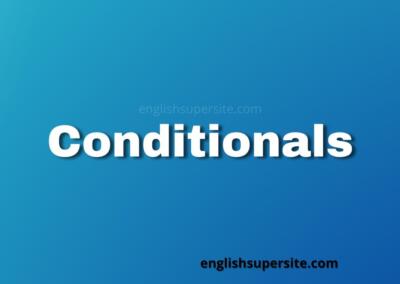
Verbs
Verbs: Express Actions, States, and Occurrences
Verbs are words that describe actions (e.g., “run,” “eat,” “write”), states of being (e.g., “is,” “seem,” “exist”), and occurrences (e.g., “happen,” “occur”). They are essential for constructing meaningful sentences in English, as every complete sentence must contain a verb. Verbs also indicate tense, showing whether the action or state occurs in the past, present, or future. Different verb forms include regular, irregular, and auxiliary verbs, which support the main verb in a sentence.
Mastering verb use allows you to convey precise actions, states, and timing in both speech and writing.

Conditionals are sentences that express hypothetical situations or describe an outcome based on a certain condition.

Learn when to use Do or Make. Understand the differences between DO and MAKE. Study and practice exercises using ...
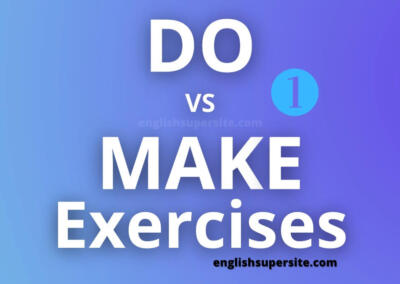
Do vs Make - Exercises 1 - Quiz - Learn when to use Do or Make. Understand the differences and when to use Do and Make.
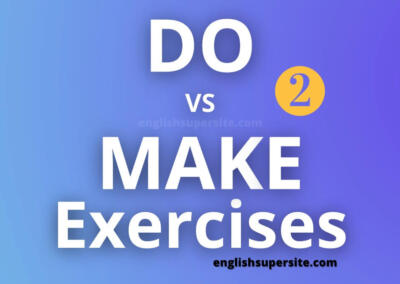
Do vs Make - Exercises 2 - Quiz - Learn when to use Do or Make. Understand the differences and when to use Do and Make.
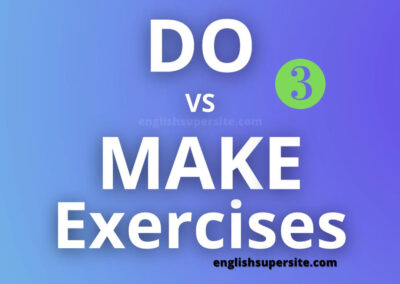
Do vs Make - Exercises 3 - Quiz - Learn when to use Do or Make. Understand the differences and when to use Do and Make.

Sometimes called Future Progressive, the Future Continuous is one of the verb forms associated with the Future ...
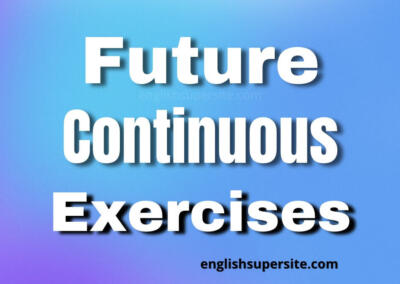
Verb Tenses - Future Continuous - Exercises - Practice exercises with Future Continuous. Improve your oral and ...

We use Future Perfect when you want to speak about an event that will be completed before a particular time in the ...
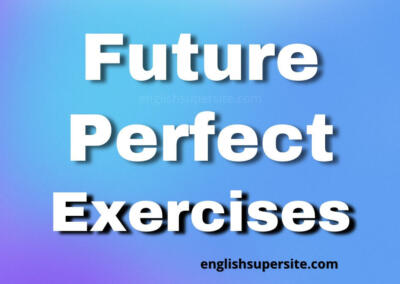
Verb Tenses - Future Perfect - Exercises - Practice exercises with Future Perfect. Improve your oral and written ...

We use Future Perfect Continuous when you want to speak about an event that will happen and continue in a ...
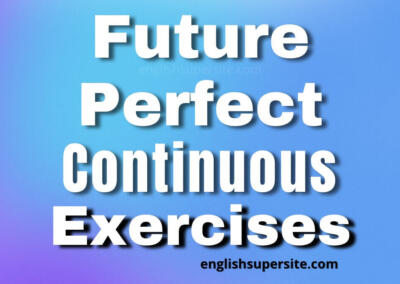
Verb Tenses - Future Perfect Continuous - Exercises - Improve your oral and written skills with exercises and ...
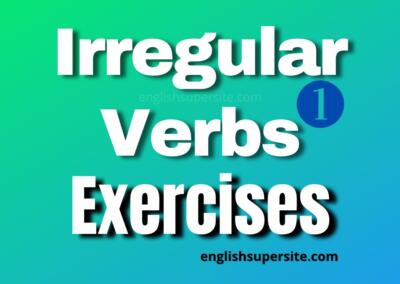
Irregular Verbs - Exercises 2 - Irregular Verbs - Quiz 2. An easy and fun way to learn and practice Irregular ...
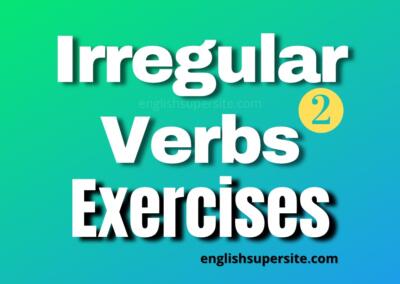
Irregular Verbs - Exercises 2Practice these exercises with Irregular Verbs:Irregular Verbs - Exercises 2: ...
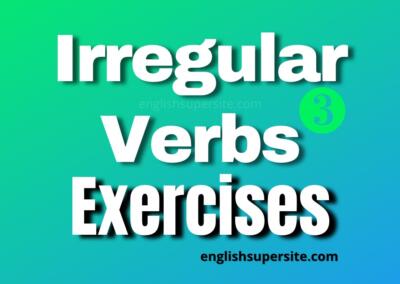
Irregular Verbs - Exercises 3 - Irregular Verbs - Quiz 3. An easy and fun way to learn and practice Irregular ...
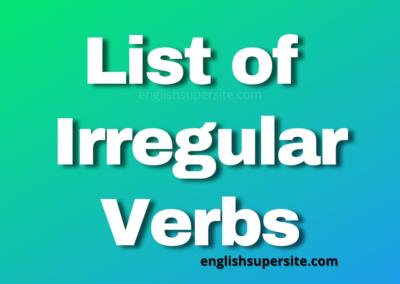
List of Irregular Verbs | English Super SiteList of Irregular VerbsQuick ...
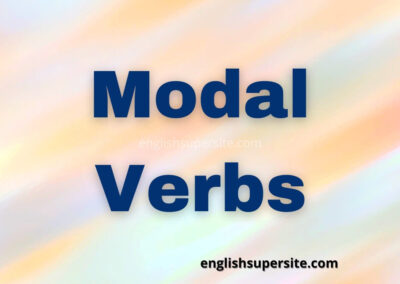
Modal verbs are auxiliary verbs in English that are used to express the speaker's attitude or opinion about the ...
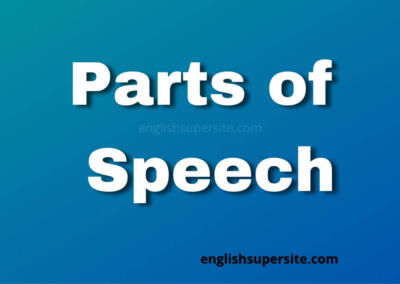
Learn here the basics of English Grammar. Parts of Speech are nouns, pronouns, adjectives, verbs, adverbs, ...
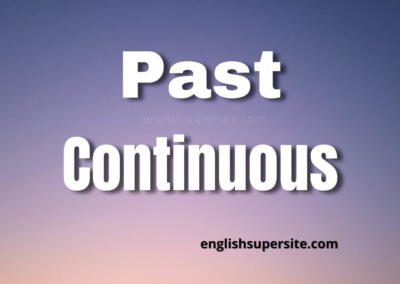
The Past Continuous is a verb tense we use to express that an ongoing action was happening in the past. It gives a ...
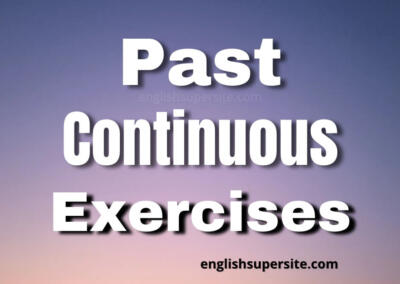
Past Continuous - Exercises - Practice exercises with Past Continuous. Improve your oral and written skills with ...
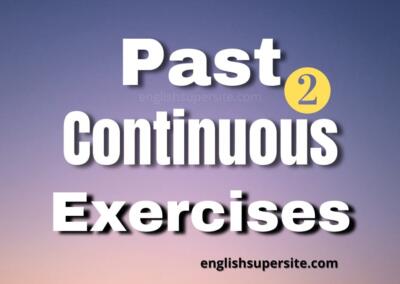
Past Continuous - Exercises 2 - Practice exercises with Past Continuous. Improve your English skills with ...
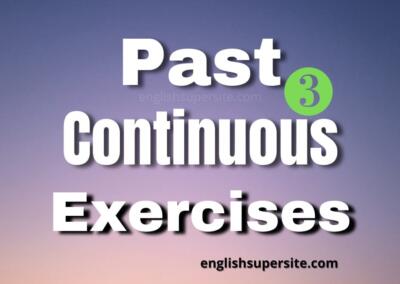
Past Continuous - Exercises 3 - Practice exercises with Past Continuous. Improve your English skills with ...

The Past Perfect is a verb tense we use to express that an action has happened in the past and it has a connection ...
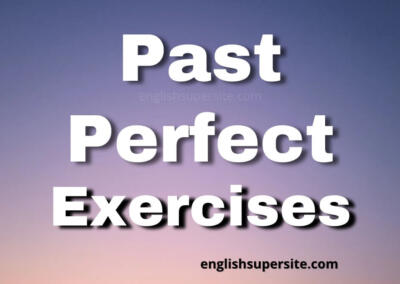
Past Perfect - Exercises - Practice exercises with Past Perfect. Improve your oral and written skills with ...
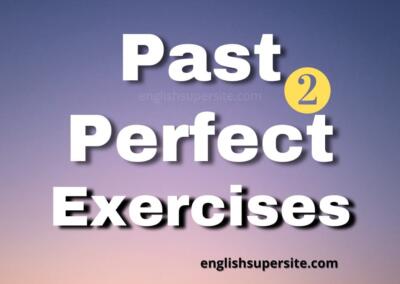
Past Perfect - Exercises 2 - Practice exercises with Past Perfect. Improve your English skills with exercises and ...
Related Posts
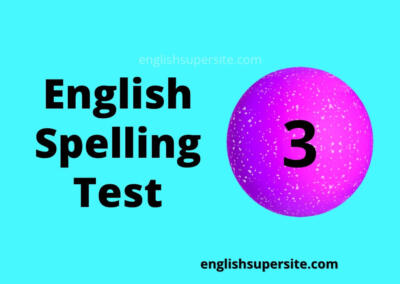
Check your English proficiency with this Quick English Spelling Test 3. Check your progress in REAL TIME. Finish ...

List of Irregular Verbs | English Super SiteList of Irregular VerbsQuick ...
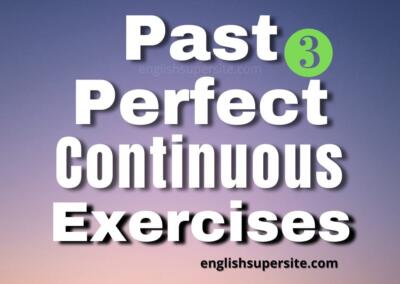
Practice Past Perfect Continuous - Exercises 2 with a multiple-choice quiz and real-time feedback. Improve your ...


